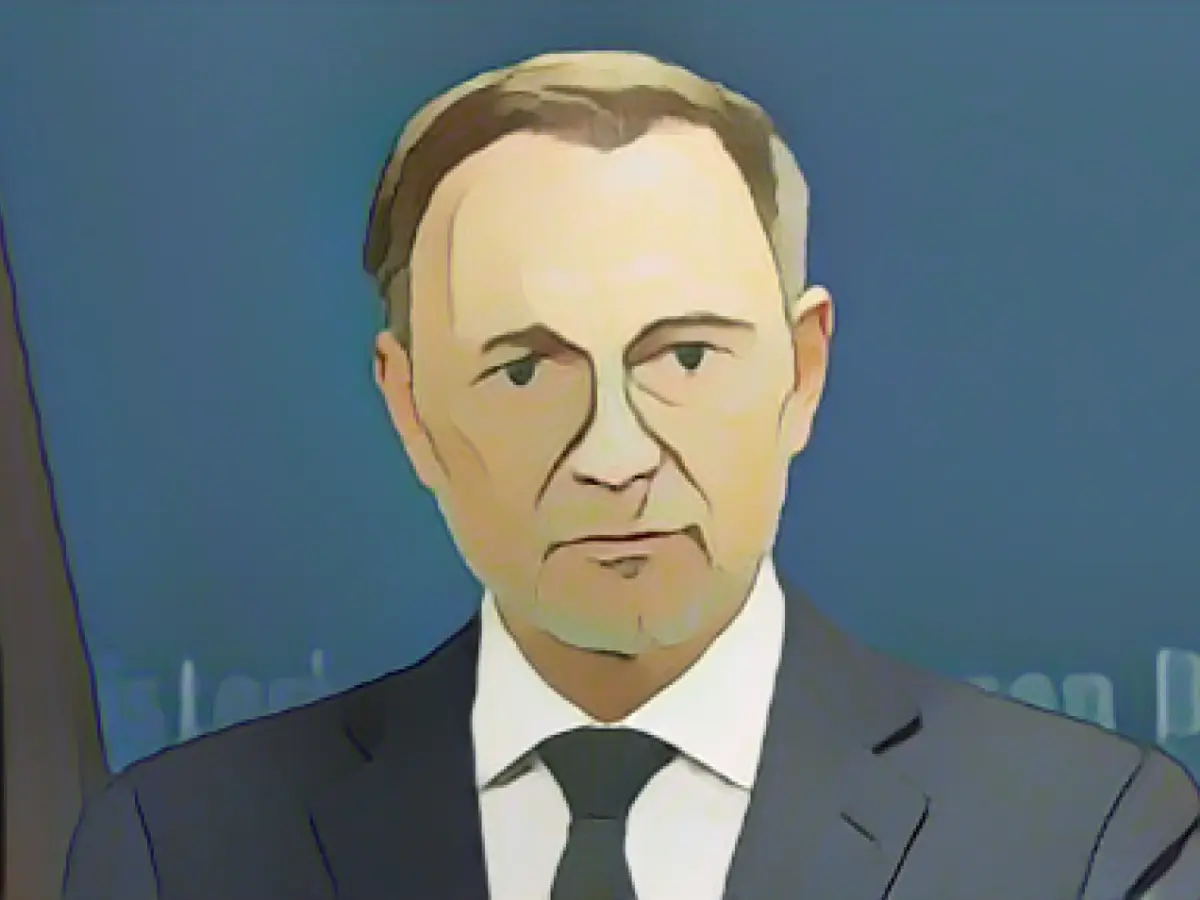Lindner calls for savings in the areas of social welfare and climate financing
The coalition leaders are currently looking intensively for ways to close funding gaps in the budget for the coming year. Lindner had put the gap in the core budget alone at 17 billion euros. In the Funke interview, the Finance Minister pointed out that the federal government currently spends 45 percent of its budget on social welfare alone. "We will look at how we can become more accurate," said Lindner.
For example, the aim is to get people into work more quickly - and thus reduce social spending for the state. "For example, there is a job turbo for refugees from Ukraine," said Lindner.
The Finance Minister also announced a review of the planned increases in the citizen's allowance: The inflation rate is currently developing much better than was forecast when the standard rate was set for 2024, he said. "In the upcoming review of the gap between wages and social benefits, we will therefore have to look at the adjustment procedure. Because it must always make a noticeable difference whether someone is working or not," Lindner emphasized.
The Minister named international aid as the second area where savings could be made: Germany is at the forefront of development cooperation and international climate financing. "We can happily remain in first place. But perhaps the gap to second place can be reduced," the FDP politician told the Funke newspapers. The goal is a "fairer international burden-sharing".
Lindner also sees potential for savings in state subsidy programs - without naming specific programs, however. "There are numerous subsidies that need to be questioned as to whether they are actually achieving their objectives or have not fallen out of time," he said. It is still too early to name individual programs. This would "otherwise lead to a run on subsidy programs on their last legs".
According to Lindner, however, there will be no cuts in the area of defense. "The defense budget will remain untouched," he assured.
In mid-November, the Federal Constitutional Court declared the increase in the Climate and Transformation Fund ( KTF) through unused loans from the coronavirus pandemic inadmissible following a lawsuit by the CDU/CSU. This plunged the coalition government into a budget crisis, as the ruling also reduces the federal government's financial leeway for the coming years.
The issue has considerable potential for conflict within the traffic light coalition. Cuts in social and climate spending are likely to meet with disapproval from the SPD and the Greens. These parties are calling for the debt brake to be suspended again for 2024 as well as possible tax increases - but the FDP does not want this.
CSU state group leader Alexander Dobrindt demanded cuts to the citizen's allowance - especially for the group of Ukrainian refugees. The citizen's allowance was "not made for the comfortable or for those who can simply do the maths", Dobrindt told Mediengruppe Bayern. "We therefore need to roll back the citizen's allowance and provide more incentives to take up work. Incidentally, this also applies to refugees from Ukraine."
In the interview, Dobrindt said that 17 percent of adult Ukrainian refugees in Germany were working, compared to 70 percent in the Netherlands. From this, he concluded: "We should make these people an offer of work and, if they refuse, reduce the citizen's allowance."
However, there were also warning voices from the CDU/CSU regarding social cuts. Karl-Josef Laumann (CDU), Minister for Social Affairs in North Rhine-Westphalia, defended the upcoming increase in the citizen's allowance rates as "urgently necessary". In an interview with Redaktionsnetzwerk Deutschland, he called it wrong to only criticize social benefits in the current budget crisis: "Nobody should think that the CDU is not on the side of the little people."
Laumann called for the relief on electricity costs to be linked to income instead. "Instead of cutting support for the poorest in society, we should rather talk about the insane subsidy policy of the 'traffic light'," he said. "Did high earners really need to be supported with gas and electricity costs? Or for house conversions or solar panels on roofs?" The coalition had distributed money "with a watering can without sense and reason".
The Citizen's Income is to increase by twelve percent on January 1. For single adults, this amounts to an additional 61 euros. This is intended to offset the general price increase.
Lesen Sie auch:
- The Finance Minister of Funke Media Group, Christian Lindner, is advocating for savings in the areas of social welfare and climate financing to address the budget gap.
- Lindner mentioned that Germany currently spends 45% of its budget on social welfare alone, and they aim to find ways to become more cost-effective.
- In the interview, Lindner also suggested reviewing the planned increases in the citizen's allowance due to better-than-expected inflation rates.
- Germany is a leading nation in international aid and climate financing, and Lindner proposed finding a way to reduce the gap with second place while maintaining the country's commitment.
- The Finance Minister mentioned potential savings in state subsidy programs without naming specific programs yet.
- Despite the budget crisis, Lindner assured that the defense budget will remain untouched.
- The Federal Constitutional Court declared the increase in the Climate and Transformation Fund inadmissible, causing a budget crisis for the coalition government.
- Cuts in social and climate spending are likely to face opposition from the SPD and Greens, while the FDP opposes suspending the debt brake and increasing taxes.
- Alexander Dobrindt, the CSU state group leader, called for cuts to the citizen's allowance for Ukrainian refugees, particularly for those who refuse work offers.
Source: www.stern.de







